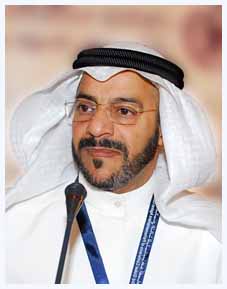International Anti-Corruption Academy (IACA) Launch: Expectations
 The UN Secretary-General Ban Ki-moon inaugurated the IACA in Laxenburg, (15km south of Vienna Austria) in September 2010. The event was witnessed by over 1,000 international participants from government, private and business sector, civil society, academia and the media. IACA’s Vision now has 36 Signatories endorsing its establishment, showing strong commitment to join forces in the fight against corruption. The event was organized by the Government of Austria, in close cooperation with the United Nations Office on Drugs and Crime (UNODC), and was supported by the European Anti-Fraud Office (OLAF). The Conference theme was “From Vision to Reality: A New and Holistic Approach to Fighting Corruption” to reflect that the IACA will assist countries in implementation of UNCAC and other treaties and conventions, be involved in anti-corruption education, research, professional training and investigative assistance.
The UN Secretary-General Ban Ki-moon inaugurated the IACA in Laxenburg, (15km south of Vienna Austria) in September 2010. The event was witnessed by over 1,000 international participants from government, private and business sector, civil society, academia and the media. IACA’s Vision now has 36 Signatories endorsing its establishment, showing strong commitment to join forces in the fight against corruption. The event was organized by the Government of Austria, in close cooperation with the United Nations Office on Drugs and Crime (UNODC), and was supported by the European Anti-Fraud Office (OLAF). The Conference theme was “From Vision to Reality: A New and Holistic Approach to Fighting Corruption” to reflect that the IACA will assist countries in implementation of UNCAC and other treaties and conventions, be involved in anti-corruption education, research, professional training and investigative assistance.
As representatives of GOPAC, my team members and I found ourselves witnessing history in the making with the inauguration of IACA, a milestone in the fight against corruption. IACA today stands as proof that visions can become reality.
Why is such an academy important? A World Bank estimate indicates that a shocking $1 trillion US, or more, is lost to corruption every year. Corruption is so wide spread and deep in our societies that it has become a way of life. Although I am in complete support of the formation of IACA, I am inclined to objectively evaluate my expectations from this organization bearing in mind the ground realities and my long standing experience in fighting corruption. Many questions arise on how far is it possible to professionalize anti-corruption work and turn it into a field of education? To what extent can this education reach out and handle ground realities? Can this education transcend across multiple economic, cultural and religious backgrounds? Corruption has a unique and flexible quality to it that makes it innovate and adapt to different situations and change with time. How nimble and flexible can IACA be to capture these new and changing trends? What impact will this group of “corruption-busters” trained at IACA leave on their societies?
Answers that I found not just encouraged and strengthened my belief but have raised my expectations of IACA. It is common knowledge that corruption breeds on need, greed, low morality, abusive nature and at times helplessness of the people in a society. IACA’s approach towards corruption as a holistic, comprehensive and inter disciplinary concept will improve the manner in which knowledge and skills to combat corruption are acquired and transferred to the society.
IACA will bridge any shortcomings in the current knowledge and gain more information of the different practices adopted world-wide. This will require dedicated effort and skill in linking the understanding of corruption as a trans-national and trans-sectoral menace, and tackling this through the use of an inter-disciplinary, inter-regional, inter-cultural and inter-sectoral approaches.
The establishment of an International Senior Advisory Board and an International Academic Advisory Board with members from the academia, international and regional organizations, criminal justice and law enforcement bodies will help IACA produce a more relevant and comprehensive real-world curriculum. Touring IACA’s state-of-the-art training facility and knowing about their outstanding faculty leaves me in no doubt that IACA would make significant impact to the fight against corruption.
Finally, International Corporation and strong networking is the key to sustaining such an effort. Associations with organizations such as Malaysian Anti-Corruption Academy (MACA, International Association for Anti Corruption Authorities (IAACA), Basel Institute of Governance provides IACA with the unity to understand corruption at a global as well as regional level. It is commendable to see Interpol’s support by offering its law enforcement expertise to define the curriculum in addition to pledging USD $250,000 to the academy from the contributions received from the Motorola Foundation.
It is definitely going to be worth the wait to see the results of such a newly born international organization. Here’s wishing IACA the very best!
Dr. Naser J. Al-Sane
Chair, GOPAC
November 2010
